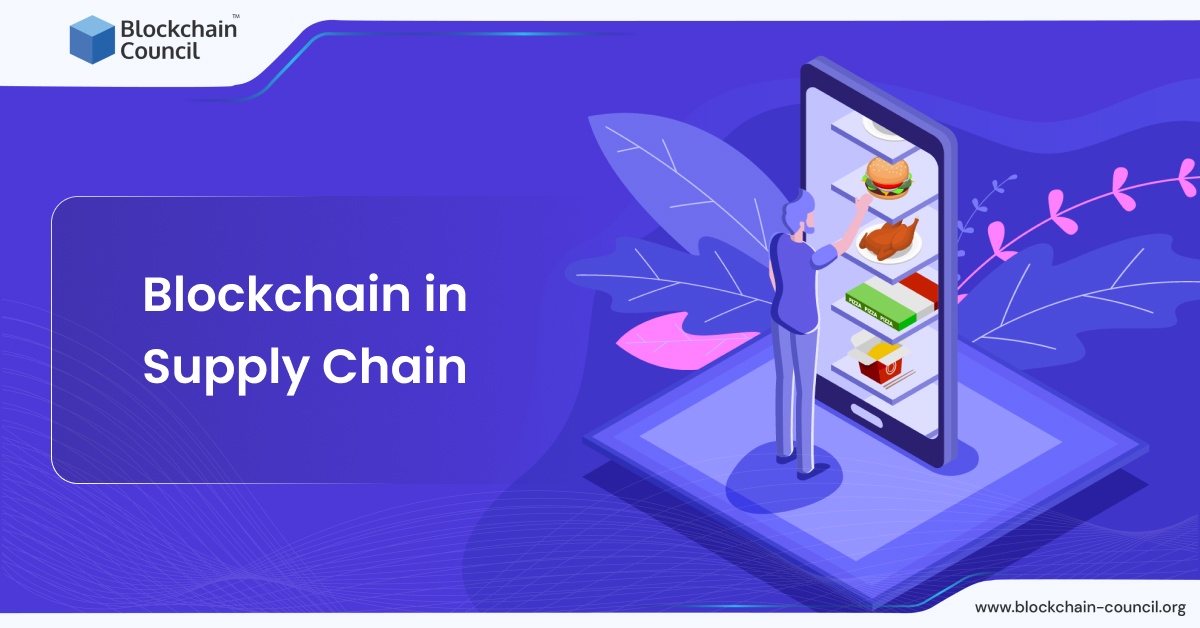Within the global trade and commerce network, the supply chain is essential to guarantee that goods are delivered to customers effectively. Nonetheless, this intricate network frequently needs help with security, traceability, and transparency. This is where blockchain technology, which promises to revolutionize supply chain operations, comes into play.
The promise of blockchain technology to improve traceability and transparency is precious for both consumers and corporations. This article will discuss blockchain in the supply chain and how it improves reliability and transparency throughout the convoluted process of moving goods from producers to final consumers.
As we move forward, it's critical to acknowledge that core knowledge is necessary to comprehend blockchain and its implementation in the supply chain. For anyone who wants to understand blockchain development, taking an online course on blockchain becomes essential.
With the most outstanding blockchain courses and training for blockchain developers, Blockchain Council provides a whole educational experience. The top blockchain courses and blockchain developers from Blockchain Council offer the essential blockchain education to handle blockchain development, regardless of your experience level.
The state of the supply chain today
Before the COVID-19 pandemic, customers were used to receiving their orders in two hours or less. The pandemic, however, upended this model and exposed the complexity and weaknesses of supply chains. Delivery delays of necessities highlighted the significance of robust and effective supply chain management. In response, businesses and consumers alike realize the need for better processes and use technology to solve problems.
However, it's essential to recognize that technology isn't a panacea. Geopolitical conflicts, cyberattacks, and environmental disturbances are just a few difficulties supply networks must overcome. These days, businesses are reassessing their just-in-time and lean planning, paying particular attention to areas like returns, manufacturing, sourcing, and delivery. Supply chain executives are focusing their strategic investments in this environment on three main factors that contribute to effectiveness:
- Forecasting the risk of the supply chain
- Supply chain traceability to enable ESG tracking
- Building trust in a multifaceted, intricate setting
When these factors are reinforced, they support provenance monitoring, brand loyalty, and transparency. Blockchain developer is a valuable instrument for meeting these requirements. Blockchain offers a reliable method for logging, verifying, and viewing transactions over a complicated network thanks to its shared ledger that is impervious to tampering. This is especially helpful for reducing supply chain risks, improving traceability for social and environmental governance, and building confidence among various stakeholders.
Blockchain and other technologies allow for proactive risk detection and mitigation, in contrast to the past when redundancy was the main tactic used to minimize interruptions. For example, blockchain technologies are used in resource-intensive businesses to improve traceability and transparency, especially when managing Scope 3 emissions. Furthermore, blockchain helps resolve trust difficulties between different parties in the global supply chain by ensuring authenticity and transparency in transactions upstream. Blockchain is a trustworthy ally that assists companies in establishing resilience, transparency, and trust as they manage the difficulties presented by a changing supply chain environment.
Blockchain's Potential to Increase Transparency
Following worldwide disturbances such as the COVID-19 pandemic, supply chain complexities have been scrutinized. When faced with delays and obstructions, companies and customers rely on technology to strengthen and optimize supply chain procedures. In the face of these obstacles, blockchain is an effective instrument providing substantial business advantages. Let's examine three main areas where blockchain technology might provide real benefits:
1. Lessened Danger
The Problem: Supply chain risks might appear in several ways, including changes in distribution, sourcing delays, transport disruptions, and facility interruptions.
Blockchain Possibility Blockchain eliminates data silos and guarantees that all stakeholders have access to reliable information by offering a shared and decentralized ledger. For example, combining blockchain with AI and IoT devices may monitor the supply chain for bottlenecks and proactively intervene to detect and mitigate transit risks.
Mitsubishi Chemical Group used real-world Illustration Blockchain to improve its sourcing skills and provide reliable information about the origins of its products. Technology made traceability and distinguishing between conventional and recycled materials possible.
2. Increased Observation
The Problem: Many businesses need help maintaining end-to-end visibility and openness in their intricate supply chains.
Blockchain Opportunity: When blockchain is used with RFID tags and Internet of Things devices, real-time tracking of items' states and movements is possible. By ensuring an unquestionable product history, anchor corporations may impose morality and sustainability upstream.
Real-world Example: To ensure tamper-proof source assurance and stop the trade in conflict diamonds, De Beers uses a blockchain-based tracking system called Tracer to trace diamonds from the mine to the final consumer.
3. Enhanced Confidence
The Problem: Trust quickly erodes in a worldwide supply chain, especially after the second tier of ties.
Blockchain Opportunity: Blockchain creates trust between all network users by logging every transaction on a shared ledger. Smart contracts further increase confidence by automating contract terms and lowering the chance of improper or inconsistent execution.
Real-world Example: FedEx's prototype blockchain-based system offers a safe, impenetrable database and allows real-time tracking and monitoring of shipments. By automating ownership transfers, intelligent contracts improve client satisfaction, trust, and the ability to resolve disputes.
The top blockchain courses and blockchain developer training provided by the Blockchain Council offer crucial knowledge for individuals hoping to become blockchain developers or experts in blockchain technology as companies strive to optimize their supply chains.
In summary
The potential advantages that blockchain offers—risk reduction, increased transparency, and trust—highlight its essential function in strengthening and optimizing supply chain procedures.
Blockchain is a technological accelerator as businesses reevaluate their approaches and invest in critical effectiveness drivers, such as forecasting supply chain risk, enabling ESG tracking, and boosting trust. Its decentralized and tamper-proof ledger addresses transparency, traceability, and trustworthiness.
Empirical instances, such as Mitsubishi Chemical Group's application of blockchain technology to improve its sourcing capabilities and De Beers' deployment of Tracr to track conflict-free diamonds, demonstrate the concrete influence of blockchain technology on risk mitigation and ethical standards.


No comments yet